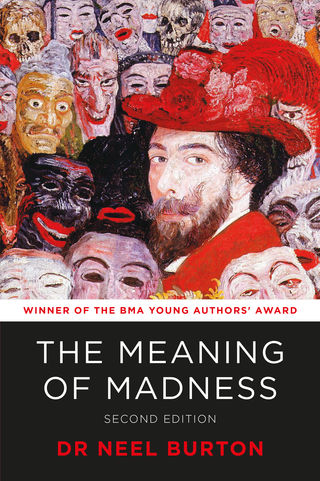Creativity
Madness, Creativity, and Religious Experience
Psychosis is more than just a marker of mental illness.
Posted April 9, 2012
[Article updated on 7 September 2017]

Although psychosis (delusions and hallucinations) can be a non-specific marker of a serious underlying disorder such as schizophrenia or bipolar disorder, it can also represent one end of a continuum of normal consciousness. Hallucinatory experiences in particular are very common: in a survey of representative samples of the general population in the UK, Germany, and Italy, as many as 38.7 percent of respondents reported having had hallucinatory experiences of some sort or other. Whilst psychotic symptoms may be a marker of a serious underlying disorder, in many cases they may be an indicator or expression of stress and distress or of a difficult or deep-seated life problem. In some cases, they may even be a normal or life-enhancing experience: for example, hearing voices of ancestors or guardian angels and finding comfort in them, or seeing visions and finding inspiration or religious revelation in them.
There can be little doubt that some people have had unusual experiences of different realities at some point in their lives and been enriched rather than distressed or impaired by them (see, for example, my recent post on Carl Jung, Jung: The Man and his Symbols). The idea that psychosis or 'madness' and inspiration and revelation are closely related is an old and recurrent one. For instance, in the Phaedrus, the philosopher and protopsychiatrist Plato tells us that,
"Madness, provided it comes as the gift of heaven, is the channel by which we receive the greatest blessings ... the men of old who gave things their names saw no disgrace or reproach in madness; otherwise they would not have connected it with the name of the noblest of arts, the art of discerning the future, and called it the manic art ... So, according to the evidence provided by our ancestors, madness is a nobler thing than sober sense ... madness comes from God, whereas sober sense is merely human."
The idea that psychosis and inspiration and revelation are closely related may be an old and recurrent one, but it is also a marginal one, and people with prominent psychotic symptoms are very likely to be stigmatized and isolated. By contrast, in many traditional societies these same people may be seen as visionaries and mystics and celebrated and sought out for their special insights and abilities.
As discussed in a previous post, Schizophrenia and Creativity, owing to a lack of lateralization of function in the brain, people with schizophrenia and their non-schizophrenic relatives may gain in creativity from increased use of the right hemisphere, and consequently from increased communication between the right and left hemispheres. Interestingly, increased use of the right hemisphere also occurs in healthy people with high levels of paranormal and religious beliefs. In traditional societies people with psychosis or with high levels of paranormal and religious beliefs may project an aura of spirituality and religiosity and, as a result, may be conferred shamanic or shaman-like status. The term ‘shaman’ is generally used to refer to healers, medicine men, seers, sorcerers, and such like—important people whose role within a traditional society may include physical and psychological healing, but also divining the weather, following totemic animals, communing with the spirits, and placating the gods.
Thus, rather than being stigmatized and isolated, people with schizophrenia and schizotypal traits may be seen as gifted or blessed, and may be accorded an important social role and attending high social status. The finding that the outcome of schizophrenia is generally more favorable in traditional societies may have much to do with the fact that people in traditional societies see mental disorder more as a part of life than as a sign of illness or failure, and enable people with a mental disorder to retain an honorable place in their very midst.
Neel Burton is author of The Meaning of Madness, The Art of Failure: The Anti Self-Help Guide, Hide and Seek: The Psychology of Self-Deception, and other books.
Find Neel Burton on Twitter and Facebook

References
Ohayon MM (2000): Prevalence of hallucinations and their pathological associations in the general population. Psychiatry Res. 97(2–3):153–64.
Pizzagalli D (2000): Brain electric correlates of strong belief in paranormal phenomena: intracerebral EEG source and regional Omega complexity analyses. Psychiatry Res. 100(3):139–54.


